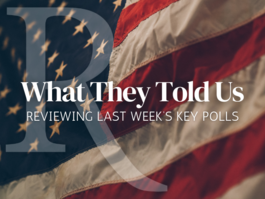Kagan's Harvard Policy Was Vapid and Hollow
A Commentary By Debra J. Saunders
Elena Kagan famously wrote that Senate judicial confirmation hearings were "a vapid and hollow charade" in 1995. Of course, as a nominee for the U.S. Supreme Court, she gains nothing by being blunt, so who can blame her for taking the cagey route?
Not I.
But I can comment on how perfectly the term "vapid and hollow charade" fits the Harvard Law School policy -- barring military recruiters from using the school's Office of Career Services -- which Kagan championed as the school's dean to protest the "don't ask, don't tell" policy. As she explained in a 2005 e-mail, "I believe the military's discriminatory employment policy is deeply wrong -- both unwise and unjust."
In Cambridge, Mass., her position was popular. In Washington, it is not. So Kagan told the Senate Judiciary Committee last week, "We were trying to do two things, to make sure military recruiters had full access to students and protect our anti-discrimination policy."
That is, Kagan spent the week arguing that the policy was utterly meaningless.
"Military recruiters had access to Harvard students every single day I was dean," she boasted.
And: "I respect and indeed I revere the military."
Sen. Jeff Sessions, the ranking Republican on the committee, wasn't buying it. He told Kagan, "You keep referring in your e-mails and all to the military policy. Isn't it a fact that the policy was not the military policy, but a law passed by the Congress of the United States?" He complained that recruiters who had served in Iraq or Afghanistan "were appearing to recruit on your campus ... and you were taking steps to treat them in a second-class way."
And: "Why wouldn't you complain to Congress and not to the dutiful men and women who put their lives on the line for America every day?"
The answer is simple: To complain to Congress would entail standing up to Democrats, including her old boss, President Bill Clinton.
So instead, Kagan and company targeted U.S. troops acting under orders. When doing so became inconvenient -- that is, when it impeded her ascension to the Supreme Court -- she argued that the military ban didn't really do anything.
Kagan even boasted that under her watch, military recruitment went up.
PolitiFact, the nonpartisan fact-checker, investigated that claim and found that, "Most years, two or three students went into the military. In 2005, it was five students. We rated Kagan's statement Half True." (PolitiFact also found that the Harvard Law School Veterans Association that "did assist the military" in lieu of the Office of Career Services was "unable to provide the full range of services" available to other employers.)
Then there's the money issue. When she became law school dean in 2003, Kagan followed her predecessor's reluctant decision to end the ban on military recruitment through the Office of Career Services implemented to meet Harvard's 1979 anti-discrimination rules. The 1996 Solomon Amendment requires universities to grant the military equal access, and the law school acquiesced lest Harvard University forfeit federal funds.
The thing is, the instant she was able to claim a flimsy pretext to give the boot to military recruiters, she took the beach. When the Third Circuit Court of Appeals ruled that the Solomon Amendment was unconstitutional in November 2004, she quickly announced the law school would not sponsor military recruiters.
Later, the Supreme Court upheld the Solomon Amendment's constitutionality in an 8-0 decision -- which shows how slippery her legal reasoning was.
In the meantime, the Pentagon fought back. Harvard University President Larry Summers apparently re-invited military recruiters "with little apparent input from Kagan," the Washington Post reported after the Pentagon released documents on the controversy. When Kagan could pick on recruiters, she did.
I recognize that Kagan is about as moderate a liberal as the right can expect. Barring some odd revelation, she is poised to win confirmation. The GOP would be ill advised to use the filibuster to prevent an up-or-down vote.
But let's be clear about Kagan: She says she reveres the very people whom she sought to treat as second class, while she rubbed elbows with powerful Democrats (and Republicans) who pushed the policy she found to be unjust.
Then when the policy was bad for her career, she trumpeted the many ways that she worked to get around it -- why recruitment even went up.
Think about it. This was the cause that the cautious Kagan embraced, she signed an amicus brief on the issue, she put Harvard Law School on the line -- all for a vapid, hollow gesture. But if she wins a spot on the big bench, where she doesn't need to win votes or to persuade nonbelievers, it won't be a charade anymore.
COPYRIGHT 2010 CREATORS.COM
See Other Political Commentary
See Other Commentary by Debra J. Saunders
Views expressed in this column are those of the author, not those of Rasmussen Reports.
Rasmussen Reports is a media company specializing in the collection, publication and distribution of public opinion information.
We conduct public opinion polls on a variety of topics to inform our audience on events in the news and other topics of interest. To ensure editorial control and independence, we pay for the polls ourselves and generate revenue through the sale of subscriptions, sponsorships, and advertising. Nightly polling on politics, business and lifestyle topics provides the content to update the Rasmussen Reports web site many times each day. If it's in the news, it's in our polls. Additionally, the data drives a daily update newsletter and various media outlets across the country.
Some information, including the Rasmussen Reports daily Presidential Tracking Poll and commentaries are available for free to the general public. Subscriptions are available for $4.95 a month or 34.95 a year that provide subscribers with exclusive access to more than 20 stories per week on upcoming elections, consumer confidence, and issues that affect us all. For those who are really into the numbers, Platinum Members can review demographic crosstabs and a full history of our data.
To learn more about our methodology, click here.



